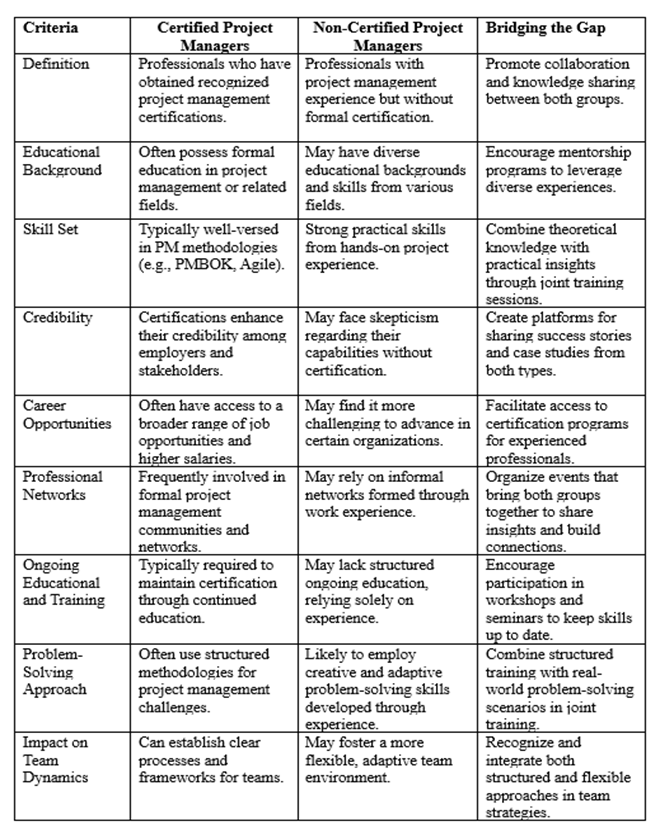By: Tode Thomas Adeyemi, PhD
Introduction
In today's dynamic and complex business environment, the role of project managers has become increasingly crucial to the success of organizations across various industries. Project management involves overseeing and executing projects and requires a keen understanding of strategic objectives, stakeholder engagement, and risk management. Within this professional landscape, a distinction emerges between certified and non-certified project managers, each bringing unique strengths and perspectives to their roles. Certified project managers who have undergone formal training and assessment often embody a standardized framework of best practices and methodologies. Conversely, non-certified project managers may have a wealth of practical experience and intuitive skills honed through hands-on project involvement. This article explores the critical differences and how bridging the gap between them can foster greater collaboration, knowledge transfer, and, ultimately, improved project outcomes. By understanding each group, organizations can create a more inclusive and effective project management culture that leverages the diverse talents of all team members. The table below shows the difference between certified and non-certified project managers and how the gap can be bridged.

Conclusion
In conclusion, the distinction between certified and non-certified project managers highlights the diverse skills and experiences contributing to effective project management. Certified project managers bring a structured approach and adherence to recognized methodologies, which can enhance consistency and accountability in projects. On the other hand, non-certified project managers often possess valuable hands-on experience and practical insights that can drive innovation and adaptability in rapidly changing environments. Bridging the gap between these two groups fosters a collaborative atmosphere where best practices can be shared, and diverse perspectives can lead to more holistic solutions. Organizations that embrace both certified and non-certified project managers can capitalize on their unique strengths, creating teams that are not only versatile but also equipped to tackle complex challenges. By investing in professional development, encouraging mentorship, and promoting an inclusive culture, businesses can harness the full potential of their project management teams, ultimately leading to more successful projects and enhanced organizational performance.
